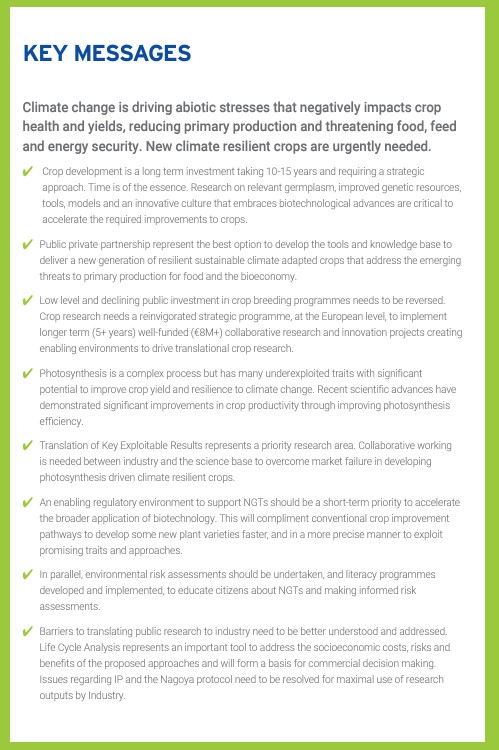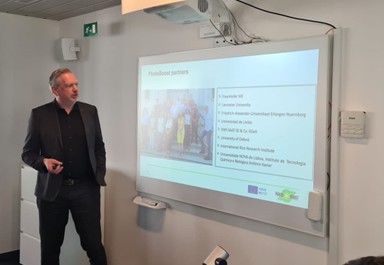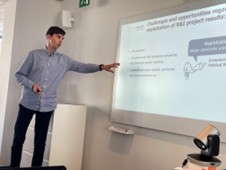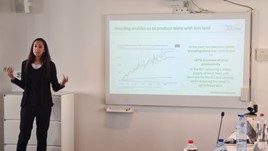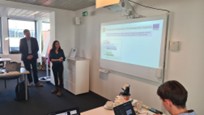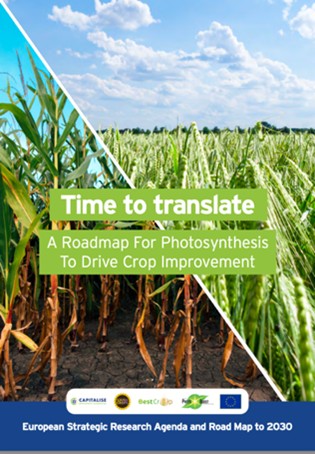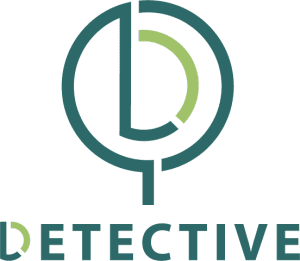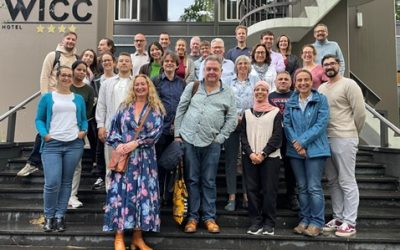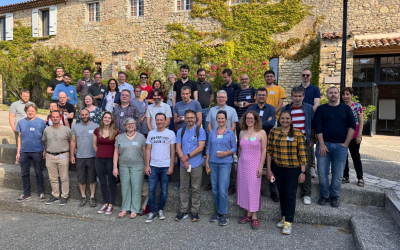Our roadmap, Time to Translate, was presented to European Commission officials on the 29th of November to highlight the importance of translating improved photosynthesis traits to European crops
The presentation took place in Euroseeds, Brussels at our workshop: Improving Crop Yield and Resilience in a Changing Climate involving a number of EU H2020 funded photosynthesis projects CAPITALISE, PhotoBoost, Gain4Crops, BestCrop and the biotech projects GeneBEcon and DETECTIVE.
Improved photosynthesis is part of the solution for delivering future-proof stress resilient crops. Improved crops will be important to meet societal needs including food and energy security, sustainability and climate change mitigation. Photosynthetically superior crops have higher yields, are more resilient to abiotic stresses, with better resource use efficiencies requiring less water and nitrogen.
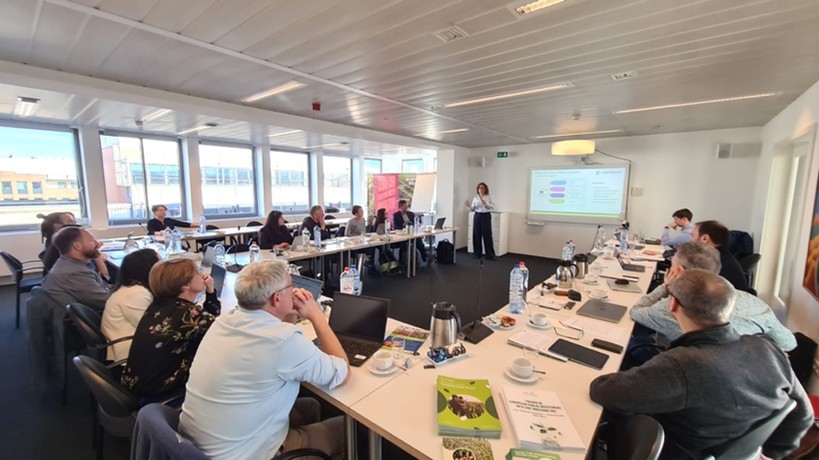

Four EU funded photosynthesis projects are leading the way in Europe, using a variety of strategies, with a wealth of Key Exploitable Results, to improve photosynthesis in several important crop species.
The Roadmap suggests routes to take these results forward for translation to breeders and explores the barriers to translation that need to be overcome.
Louisa Dever (CAPITALISE) presented the highlights from the Roadmap.
The workshop featured presentations from the four photosynthesis projects: Jeremy Harbinson for CAPITALISE; Urte Schlüter, Götz Hensel and Laia Segura Broncano for Gain4Crops, Stefan Schillberg for PhotoBoost. Paolo Pesaresi highlighted how the BestCrop project was addressing both photosynthesis and optimising crops for processing as commercial feedstock applications.
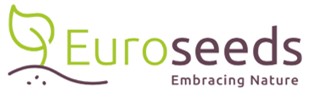
Petra Jorasch (Euroseeds) presented on The Need for Improved Crops and Nick Vangheluwe on How to Facilitate Research Uptake by the Seed and Plant Breeding Sector for Crop Improvement in Europe.
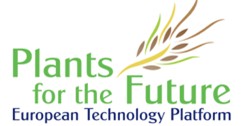
We were also joined by Amrit Nanda from Plants for the Future (ETP) who spoke about the decline in funding for plant breeding and the need for Public-Private Partnerships in research projects. She presented their recent report on Trends in European Public Investment in Plant Breeding R&I
The meeting also featured presentations from GeneBEcon -which is examining the innovation potential of gene editing in enabling a sustainable bioeconomy in Europe by Katrijn Van Laere; and DETECTIVE which focuses on detection of NGT products to promote innovation in the European Union by Frederic Debode.
Our key messages in the Roadmap highlight: the benefits of a more strategic approach to overcome disconnected “islands of research”; the need for more Public Private Partnerships to address the “translation gap“ in plant breeding research; and a reminder that crop breeding is a long-term process- funding short research projects is not the most optimal way of accelerating Crop Technology Readiness levels.
A more strategic approach with an enabling environment is needed for future crop development.
